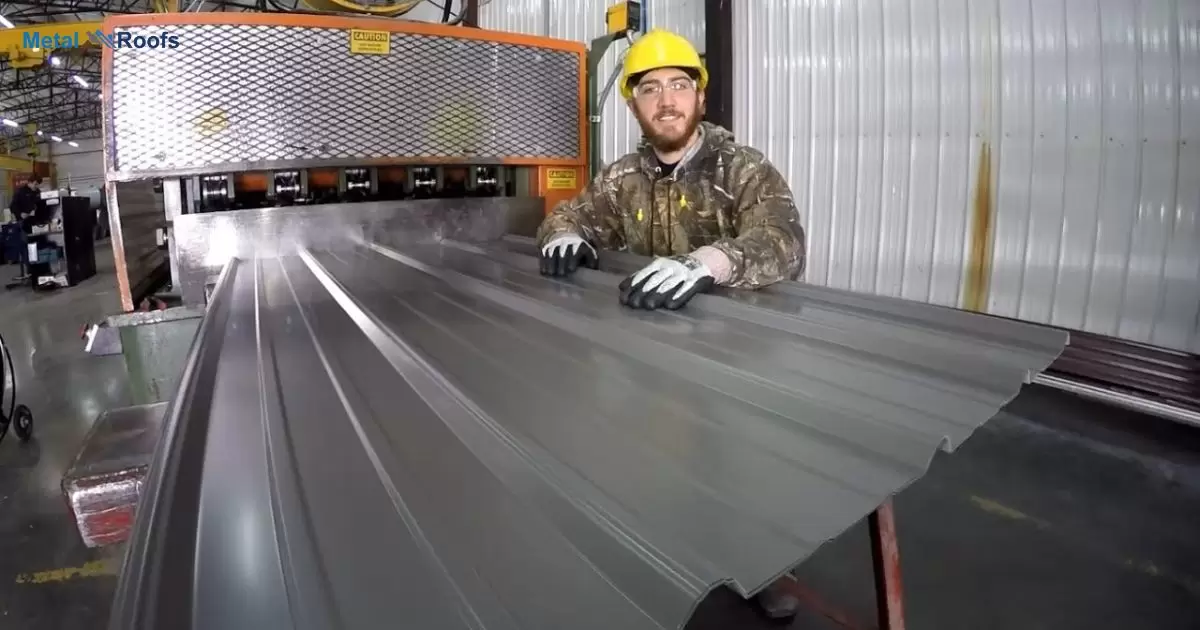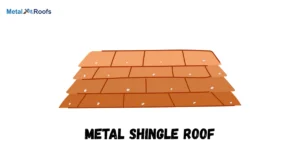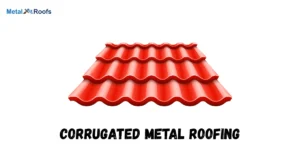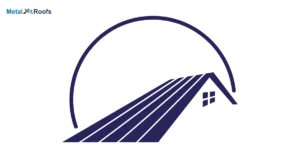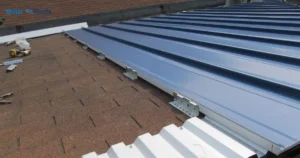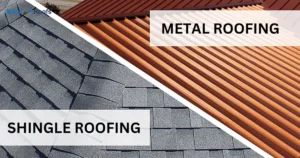29 gauge metal roofing is lightweight. It offers durability and longevity. It resists fire, wind, and hail. It comes in various colors/styles. It requires skilled installation. It helps shed snow and ice quickly. It provides energy efficiency. It suits residential/commercial use. It demands proper ventilation.
29 gauge metal roofing is thin. It’s about 0.0141 inches thick. A standard thickness for roofs. How thick is 29 gauge metal roofing? Common for residential buildings. Offers affordability and durability. Perfect balance of weight and strength. Suitable for most climatic conditions.
Metal roofs are durable, attractive, and long-lasting, resisting extreme weather and offering various finishes. Issues like a leak in a metal roof should be addressed promptly to maintain their longevity.
Key Takeaways
- Approximately 0.0142 inches (0.36 mm).
- Commonly used for residential roofing.
- Combines strength, durability, and affordability.
- Thickness may slightly vary by manufacturer.
Gauge Steel Thickness
Gauge steel thickness refers to the measurement of a steel sheet’s thickness. The higher the gauge number, the thinner the steel. For example, 29 gauge steel is about 0.0142 inches thick. This measurement system helps standardize steel thickness across different manufacturers.
People use gauge numbers to choose the right steel for their projects. Thicker steel (lower gauge) is stronger and more durable. Thinner steel (higher gauge) is lighter and more flexible. For most residential roofing, 29 gauge steel offers a good mix of strength and cost.
14 Gauge Thickness
| Material | Thickness (in inches) |
| Steel | 0.0747 |
| Stainless Steel | 0.0785 |
| Aluminum | 0.0641 |
| Copper | 0.0641 |
| Brass | 0.0641 |
14 gauge thickness refers to the thickness of metal sheets used in various applications. Specifically, 14 gauge metal is about 0.078 inches thick, or roughly 1.98 millimeters. This gauge is commonly employed in heavy-duty tasks like industrial machinery or structural components due to its sturdiness.
It offers a robust solution without excessive weight, making it suitable for diverse projects. In construction, 14 gauge metal is often used for framing, providing a solid framework for buildings and structures. Its thickness ensures durability while maintaining manageable weight for ease of handling during construction.
18 Gauge Steel Thickness
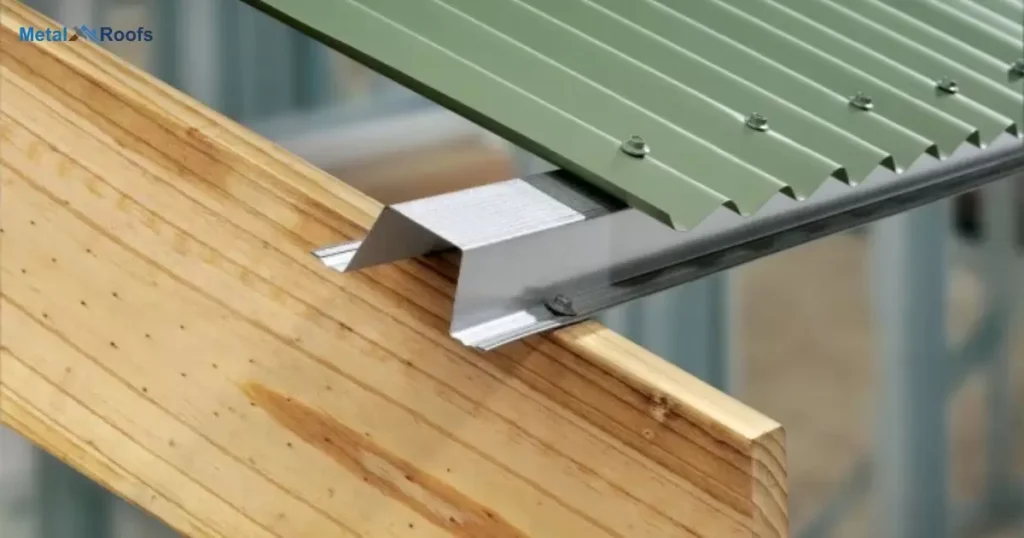
18 gauge steel measures about 0.0478 inches thick. This thickness is common in many industries. It provides a good balance of strength and flexibility. You often see 18 gauge steel used in car bodies and various construction projects.
People choose 18 gauge steel for its durability. It is strong enough for heavy-duty use but still manageable for different applications. This makes it popular for both professionals and DIY enthusiasts. Its versatility ensures reliable performance in various tasks.
Steel Gauge Thickness Chart
A steel gauge thickness chart helps you understand the thickness of steel sheets. It provides a quick reference for choosing the right gauge for your project. The lower the gauge number, the thicker the steel. For example, 16 gauge is thicker than 20 gauge.
Using the chart, you can determine the appropriate gauge for your needs, whether it’s for roofing, siding, or other applications. Thicker gauges offer more strength but may cost more. So, balance your requirements with your budget.
Cost Of Standing Seam Metal Roof
Standing seam metal roofs can vary in cost depending on several factors. These include the size of the roof, the type of metal used, and any additional features like coatings or insulation. Generally, you can expect to pay between $8 and $14 per square foot for a standing seam metal roof.
While this initial cost may seem higher than traditional roofing materials like asphalt shingles, metal roofs often last longer and require less maintenance, making them a cost-effective choice in the long run. In addition to material costs, installation also contributes to the overall expense of a standing seam metal roof.
22 Gauge Steel Thickness

22 gauge steel thickness measures approximately 0.0299 inches, making it slightly thicker than 29 gauge steel. It’s commonly used in commercial and industrial roofing due to its added durability. This gauge offers reliable protection against harsh weather conditions while maintaining cost-effectiveness.
Manufacturers may vary slightly in their measurements, but the standard remains consistent. For areas prone to heavy rainfall or strong winds, 22 gauge steel provides sturdy defense without sacrificing affordability. Its thickness ensures structural integrity, making it a popular choice for various construction projects.
How Thick Is 29 Gauge Metal Roofing In Inches?
29 gauge metal roofing measures approximately 0.0142 inches thick. This thickness is commonly used for residential roofs due to its balance of strength, durability, and cost. Manufacturers may vary slightly in their measurements, but generally stay close to this standard.
When considering 29 gauge metal roofing, its suitability for moderate climate conditions. It provides adequate protection while remaining lightweight and affordable. So, you’re building a new home or replacing an existing roof, 29 gauge metal roofing offers a practical choice for your residential roofing needs.
26 Vs 29 Gauge Metal Roofing
When comparing 26 and 29 gauge metal roofing, the difference lies in thickness. 26 gauge is thicker than 29 gauge, measuring around 0.0185 inches versus 0.0142 inches, respectively. Thicker metal offers greater durability and resistance to harsh weather conditions.
29 gauge is commonly used for residential roofing due to its balance of strength and cost-effectiveness. It provides adequate protection while being lighter on the wallet. Both gauges serve well in different contexts, with 26 gauge suited for areas with more extreme climates, while 29 gauge is sufficient for moderate conditions.
How Thick Is 29 Gauge Metal Roofing Per Square Foot?
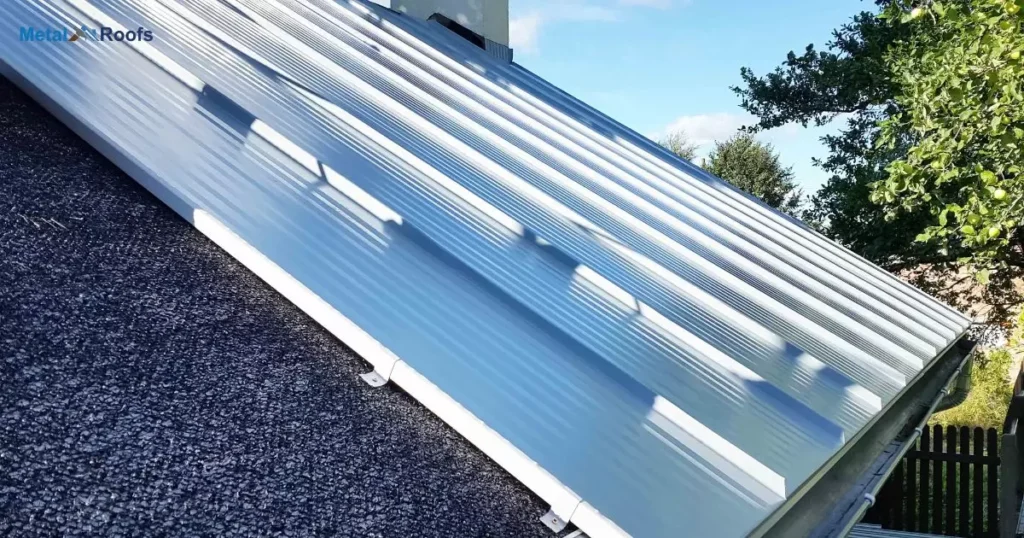
29 gauge metal roofing measures approximately 0.0142 inches thick, making it a popular choice for residential projects. This thickness offers a balance of strength and affordability, suitable for various climates. It’s commonly used per square foot in roofing installations, providing adequate protection against the elements.
Manufacturers may have slight variations in thickness, but it typically remains close to the standard measurement. Homeowners often opt for 29 gauge metal roofing due to its durability and cost-effectiveness, ensuring long-term value for their investment.
Frequently Asked Questions
How Many Mm Is 29 Gauge Metal Roofing?
29 gauge metal roofing is about 0.36 mm thick, ideal for residential use due to its balance of strength and affordability.
How Far Can You Span 29 Gauge Metal Roofing?
29 gauge metal roofing can typically span 5 to 8 feet, ensuring stability for residential applications.
How Strong Is 29 Gauge Steel?
29 gauge steel, at 0.0142 inches thick, offers a balance of strength and affordability, ideal for residential roofing in moderate climates.
Conclusion
The thickness of 29 gauge metal roofing, measuring around 0.0142 inches, provides sufficient durability for residential use. Its affordability and moderate strength make it a practical choice for homeowners seeking reliable protection.
While variations may exist between manufacturers, the overall suitability of 29 gauge steel remains consistent for many roofing projects. For those considering metal roofing options, 29 gauge steel offers a balanced solution. Its thickness, though not the thickest available, meets the needs of most climates.
